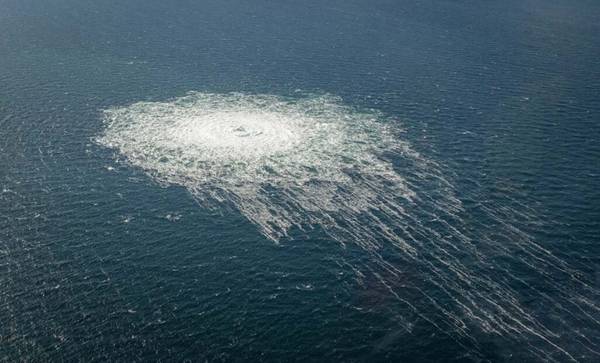
Denmark on Monday said it had dropped its investigation into the explosions in 2022 on the Nord Stream pipelines carrying Russian gas to Germany, becoming the second nation to do so after neighboring Sweden closed its own inquiry.
The multi-billion dollar Nord Stream 1 and 2 pipelines transporting gas under the Baltic Sea were ruptured by a series of blasts in the Swedish and Danish economic zones in September 2022, releasing vast amounts of methane into the air.
"The investigation has led the authorities to conclude that there was deliberate sabotage of the gas pipelines. However, the assessment is that there are not sufficient grounds to pursue a criminal case in Denmark," a Copenhagen police statement said.
Russia and the West, at loggerheads over Moscow's invasion of Ukraine in February 2022, have pointed fingers at one another over the pipeline blasts. Each has denied any involvement and no one has taken responsibility.
Sweden earlier this month dropped its investigation into the explosions, saying it lacked jurisdiction in the case, but had handed uncovered evidence to German investigators, who have yet to publish any findings.
Danish police said they had been cooperating with relevant foreign partners and that the investigation conducted had been "both complex and comprehensive".
A police spokesperson declined to comment when asked by Reuters to elaborate on why there were insufficient grounds for continuing the investigation and on which authorities they had shared their findings with.
Danish police had previously said the pipelines were hit by powerful explosions and Swedish investigators confirmed that traces of explosives found on site conclusively showed that sabotage had occurred.
Last year, Germany told the U.N. Security Council it had found traces of subsea explosives on a sailing yacht that may have been used to transport the explosives, and that trained divers may have attached the explosives to the pipelines.
Russia has blamed the United States, Britain and Ukraine for the blasts, which largely cut Russian gas off from the lucrative European market. Those countries have denied involvement.
Some Western officials have said Russian naval vessels were in the area at the time of the blasts, but others have said there is no hard evidence to implicate Moscow, which called the suggestion it was behind the attacks "absurd".
(Reuters - Reporting by Stine Jacobsen and Louise Breusch-Rasmussen; editing by Terje Solsvik and Mark Heinrich)